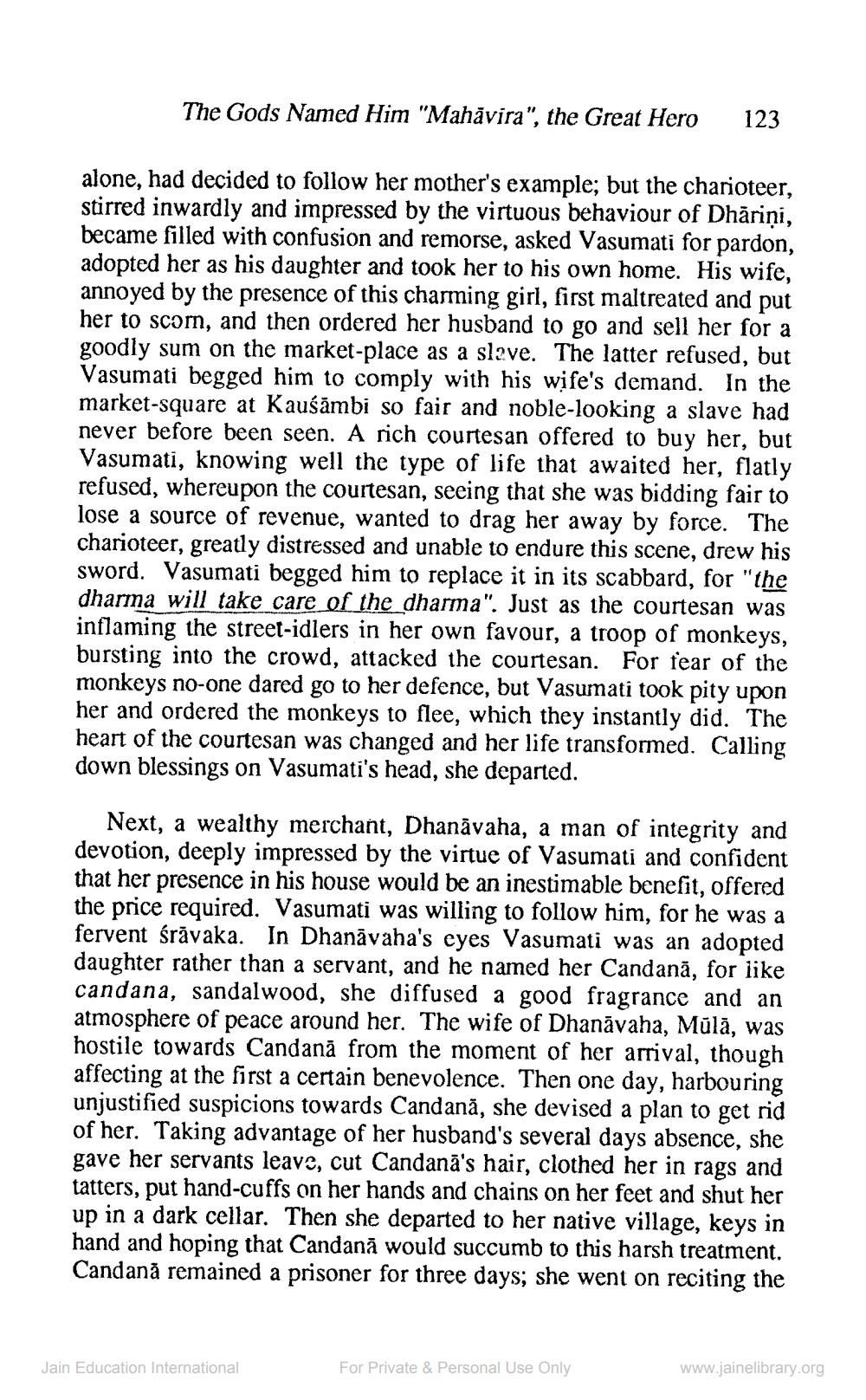________________
The Gods Named Him "Mahāvira", the Great Hero
123
alone, had decided to follow her mother's example; but the charioteer, stirred inwardly and impressed by the virtuous behaviour of Dhāriņi, became filled with confusion and remorse, asked Vasumati for pardon, adopted her as his daughter and took her to his own home. His wife, annoyed by the presence of this charming girl, first maltreated and put her to scom, and then ordered her husband to go and sell her for a goodly sum on the market-place as a slave. The latter refused, but Vasumati begged him to comply with his wife's demand. In the market-square at Kaušāmbi so fair and noble-looking a slave had never before been seen. A rich courtesan offered to buy her, but Vasumati, knowing well the type of life that awaited her, flatly refused, whereupon the courtesan, seeing that she was bidding fair to lose a source of revenue, wanted to drag her away by force. The charioteer, greatly distressed and unable to endure this scene, drew his sword. Vasumati begged him to replace it in its scabbard, for "the dharma will take care of the dharma". Just as the courtesan was inflaming the street-idlers in her own favour, a troop of monkeys, bursting into the crowd, attacked the courtesan. For fear of the monkeys no-one dared go to her defence, but Vasumati took pity upon her and ordered the monkeys to flee, which they instantly did. The heart of the courtesan was changed and her life transformed. Calling down blessings on Vasumati's head, she departed.
Next, a wealthy merchant, Dhanavaha, a man of integrity and devotion, deeply impressed by the virtue of Vasumati and confident that her presence in his house would be an inestimable benefit, offered the price required. Vasumati was willing to follow him, for he was a fervent śrăvaka. In Dhanāvaha's eyes Vasumati was an adopted daughter rather than a servant, and he named her Candanā, for like candana, sandalwood, she diffused a good fragrance and an atmosphere of peace around her. The wife of Dhanāvaha, Mülā, was hostile towards Candană from the moment of her arrival, though affecting at the first a certain benevolence. Then one day, harbouring unjustified suspicions towards Candană, she devised a plan to get rid of her. Taking advantage of her husband's several days absence, she gave her servants leave, cut Candanā's hair, clothed her in rags and tatters, put hand-cuffs on her hands and chains on her feet and shut her up in a dark cellar. Then she departed to her native village, keys in hand and hoping that Candanā would succumb to this harsh treatment. Candană remained a prisoner for three days; she went on reciting the
Jain Education International
www.jainelibrary.org
For Private & Personal Use Only




